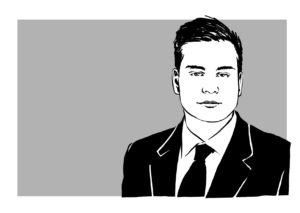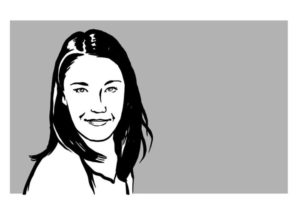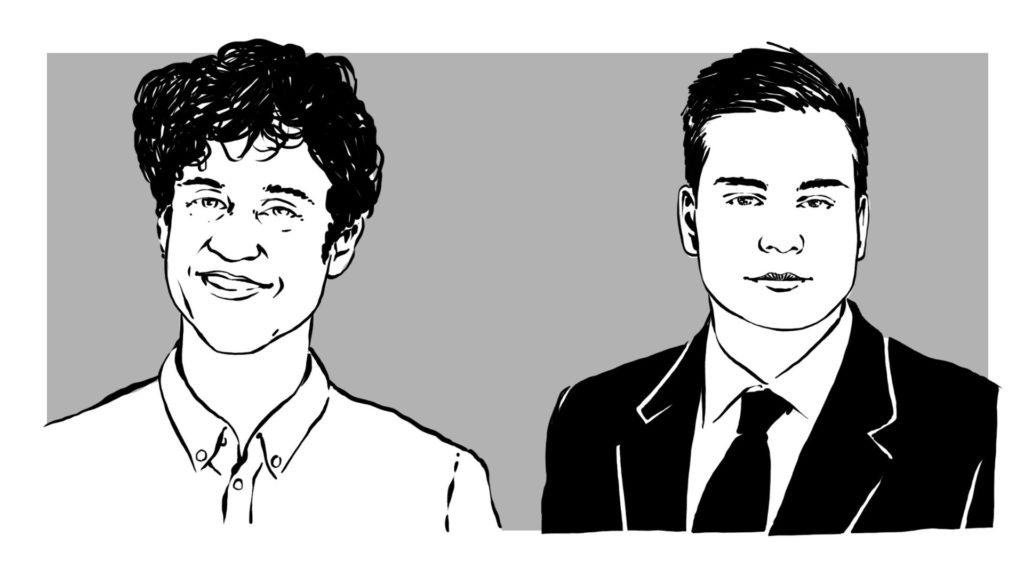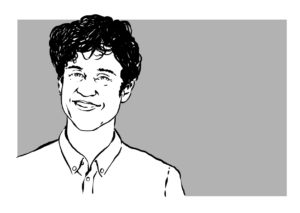Founded in 2014, Kiron Open Higher Education assists refugees with free and fast access to higher education. Founders Markus Kressler and Vincent Zimmer on navigating the realm between politics and social entrepreneurship and how start-ups and policy makers can work together to tackle the refugee challenge.
The past year has been very exciting- what are the next steps for Kiron Open Higher Education?
Thanks to the Schöpflin foundation we secured financing for the next three years and we are approaching our goal to enable 5000 refugees to study in 2016. To reach this goal, our team constantly improves online and offline offers to allocate sufficient resources for our students. On the one hand, we want to extend our blendedlearning method. On the other hand, we want to establish a sustainable structure in those countries where we are already represented by Kiron students as well as Kiron team members. That means that we have to expand our offline offers in those places and that we need to improve the relationships with partner universities, in order to support and link students. Also, we are happy to start our partnership with Workeer, a job platform for refugees, in order to offer longterm career perspectives to our students.
Which challenges have you encountered since you have launched?
From the beginning on, we were aware of some challenges. For example the high drop out rates in online courses. Online studies require high discipline and selfmotivation. Therefore, we changed our admission process from the next semester on so that students can find out in advance if they are capable of online studies. Moreover, they can check if they have the right hardware and sufficient access to internet.
In addition, many of our students have to cope with adverse conditions such as the long recognition process or their traumatising experiences. Unfortunately, we do not have a big influence on those aspects. We consider our supporting services like the buddyprogram or the counselling really important in order to address our student needs in the best possible way.
For that reason, the first semester and the personal feedback of our students were especially important for us: We could test our online platform and further expand our services. For example, while visiting Jordan, we met a Kiron student who told us about the difficult study conditions. That showed us that Kiron has to become more active in countries like Jordan or Turkey.
How have you perceived the role of politics when starting Kiron Open Higher Education? How can policy makers help start-ups?
Kiron is – and always was in contact with various politicians on different levels. We are aware that processes in the political context often take some time. For this reason, it is important to create a continuous channel of communication between startups and politics. Politicians can help social startups with their expertise, their network but also with their voice. To give an example: Politicians like Gregor Gysi or Peter Altmaier already support Kiron.
How can business, start-ups and governments cooperate better to find solutions to the refugee crisis?
We think that a permanent exchange and close cooperation between business, startups and government is important. Especially interdisciplinary approaches can lead to great solutions. We as a social startup profit a lot from the expertise of the government or companies and therefore always appreciate their help, for example in the form of consulting.
Education has always been primarily the concern of the state. What does Kiron Open Higher Education do differently?
Kiron overcomes four obstacles that refugees face to access higher education: Firstly, limited financial resources: to study with Kiron is free of charge. Secondly language barriers: students study in English and have parallel language classes in order to reach a sufficient level of German to apply for a university. Thirdly, missing documents: Kiron does not ask for a high school graduation diploma. However, to transfer to the partner university, students have to hand in their diplomas. Fourthly, non clarified refugee status: the only document Kiron asks for is a proof of refugee status. However, to transfer to the partner university students need a residence permit.
As we are working together with accredited universities we can assure the same high quality of education that regular students get. What Kiron changes is the access to higher education as we overcome the above mentioned barriers.
How do you think Berlin as a city benefits from its increasing reputation as a start- up hub?
Berlin as a start- up incubator profits enormously – from the economics but also from the societal and cultural perspective. The city has a worldwide image as “Europe’s Startup metropolis”. It is a mutual relationship, also founders profit as the entrepreneurial conditions and the infrastructure is really good.
What else can the government do for young refugees coming here?
The government needs longterm integration measures. At the same time, it has to expand existing projects and approaches. Besides, we need easy access to education for all young people. Education especially helps refugees integrate in the host country – in the society but also in the labour market. Furthermore, education facilitates their way back in their former life.
 Vincent Zimmer is one of the founders and managing directors of Kiron. He focuses on developing a sustainable business model, and is responsible for presenting Kiron to interested universities and investors.
Vincent Zimmer is one of the founders and managing directors of Kiron. He focuses on developing a sustainable business model, and is responsible for presenting Kiron to interested universities and investors.
Markus Kressler is one of the founders and managing directors of Kiron. He also acts as Kiron’s media spokesperson, and is currently building branches of Kiron in Istanbul and Jordan.
 Klara Marie Schroeder is Executive Editor of The Governance Post and a second-year public policy student at the Hertie School of Governance.
Klara Marie Schroeder is Executive Editor of The Governance Post and a second-year public policy student at the Hertie School of Governance.
This interview was conducted in May 2016.

